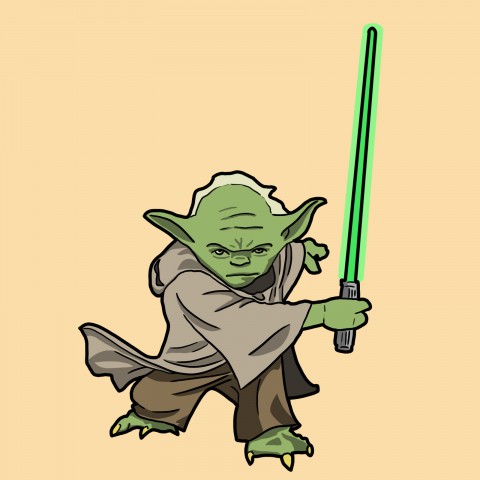
Czenglish. Have you ever heard this term? It’s been a hot topic lately, mostly due to the vigorous power of the internet and social media. Nowadays, everybody loves YouTube, TikTok, Instagram, and…influencers!
Although you won’t find a lot of similarities between Czech and English (with the exception of words derived from Latin), English is seeping into the Czech language more and more.
By the way, the phenomenon of English words used in Czech is not as new as it might seem! I was watching a Czech comedy from 1938 a couple of days ago, and one of the first scenes is a perfect example of Czenglish used in real life: Já changuju subject? Ty changuješ subject! (“I am changing the subject? You are changing the subject!”). We like using English words. We adopt them, lovingly decline and conjugate them, adjust the pronunciation to our liking, and make them our own.
Yup, it’s very convenient to speak more languages because (besides other, more prominent and useful advantages) it gives you the option to pick your favorite words and use them as you please! I am guilty of using English words in Czech convos, and it makes my grandma very confused at times!
There are also words that you probably consider English…which are actually Czech!
Let’s get into it! In this article, we’ll look at Czech words you’ve been using without realizing it, Czenglish, and Czech words of English origin.

I’ll make sure I never make this mistake again.
 Table of Contents
Table of Contents
- Introduction to Czenglish
- Czenglish Examples
- Loanwords vs. Czenglish: List of English Words in the Czech Language
- Foreign Brands, Titles, and Names in Czech
- Czech Words in English: Did You Know?
- How CzechClass101.com Can Help You Learn Czech in a Fun Way
Introduction to Czenglish
The term ‘Czenglish’ was first introduced in 1989 by Don Sparling, a Canadian professor at the Masaryk University in Brno (1977-2009), who’s also the author of English or Czenglish?
So, what is the definition of Czenglish?
- ➢ Czenglish is a version of the English language spoken by Czech learners of English. It is heavily influenced by Czech vocabulary, grammar, pronunciation, or syntax.
Czenglish mistakes might include a wide variety of “abominations,” such as:
Incorrect pronunciation
For example:
- /θ/ is often pronounced as [s], [t], or [f].
- “Thing” in Czech sounds more like “sink,” “tink,” or “fink.”
- /ð/ is often pronounced as [d].
- “They” is pronounced “dey.”
- /r/ has the typical rolling rumble to it.
Voiced consonants pronounced as unvoiced
Voiced consonants (B, D, G, J, L, M, N, Ng, R, Sz, Th as in “they,” V, W, Y, and Z) are made by vibrating the vocal cords. Unvoiced consonants…yes, you guessed it! Your vocal cords can take a break while pronouncing these: Ch, F, K, P, S, Sh, T, and Th (as in “thing”).
Czech natives, however, often pronounce them incorrectly. Which is no biK deal, but it sounds funny. I’m sure you’ve hearT a lot of Dose. Am I rrrright?
Omission of articles
It’s no wonder Czechs make this mistake, as there are no articles in the Czech language. Most Czech natives find them…redundant. Why bother, when it’s just a few letters (or even a single one)? Another thing you might encounter while talking to Czechs is the use of “some” in place of an indefinite article.
Literal translations
This is a big one. And given the stark difference between the Czech and English word order, there’s a good chance you’ll get lost in translation quite often.
Czenglish Examples
This part should be easy to write since I’m the “uncrowned queen of Czenglish” and sometimes it’s hard for my mouth to keep up with my mind, so…here it goes.
- “Basic school”
Got it? Basic school is the literal translation of základní škola (“elementary school”). I’ve heard this one way too many times to ever forget it. Základní means “basic” in Czech.
- “She said me that my English is great!”
Řekla mi, že moje angličtina je skvělá!
While in English, you might say “She said to me that my English is great,” omitting prepositions is very common in word-for-word translations. It can lead to some very funny situations…
- “I am watching on TV.”
Dívám se na televizi.
Generally speaking, the Czech language uses prepositions where English doesn’t, and vice-versa. Na means “on.”
- “Riding on bike”
Jet na kole.
This is a perfect example of preposition errors in literal translations.
- “I can English.”
Umím anglicky.
Mluvit means “to speak.” In Czech, we don’t say: Umím mluvit anglicky.
- A: “Hey, I don’t like it.” / B: “Me too.”
A: “Hele, nelíbí se mi to.” / B: “Mně taky.”
Shrug. That’s how Czech works, folks!
- Using the word “please” instead of “ask”
Oh my gosh, this mistake can actually be pretty embarrassing because “to please” has a very different meaning in English, and it’s similar to the Czech potěšit (“to make happy”). Not cute.
Poprosit (“to ask”) is derived from the word prosím (“please”), and for the average Czech, it totally makes sense to “please you to do something.”
To give you an example, the sentence Poprosil mě, abych něco řekl (“He asked me to say something”) would be incorrectly translated as “He pleased me to say something” (Potěšil mě, abych něco řekl).
I suppose you’ll want to avoid such mistakes in Czech! That’s why you should check out our list of 100 Core Czech Words and Key Czech Phrases!

Some Czenglish words sound adorable.
Loanwords vs. Czenglish: List of English Words in the Czech Language
Loanwords are “borrowed” from English without significant changes and tend to be easily understood by native English speakers.
This phenomenon has grown in popularity due to YouTube and social media, and we often use social media-related terms without changing them. However, we apply declension and conjugation in order to make them work in a Czech sentence.
We do use heavily altered (or even pure Czech) words when talking about technology, though. Check them out here.

Young Czechs use a lot of English words, mostly due to social media and influencers.
Here are some commonly used English words in Czech:
- Blog / blogging / blogovat (“to blog”)
- the noun is declined as masculine inanimate
- Lobbing
- masculine inanimate
- Barman (“bartender”)
- masculine animate
- This one only works in masculine, though. We like to be super-specific with grammatical gender, so the feminine version is barmanka.
- Blok (“block”), blokovat (“to block”)
- masculine inanimate
- Sendvič (“sandwich”)
- masculine animate
- Galon (“gallon”)
- masculine inanimate
- Klub (“club” as in “facility”)
- masculine inanimate
- Svetr (“sweater” or “jumper”)
- masculine inanimate
- Followers / followeři
- masculine animate
- Views
- not declined
- Stories (as in “Insta stories”)
- not declined
- Intro
- Trailer (as in a movie trailer)
- masculine inanimate
- Internet
- masculine inanimate
- Web (pronounced with a “v”)
- masculine inanimate
- Chat (when referring to an online conversation)
- masculine inanimate
- Email
- masculine inanimate
- Smartphone
- masculine inanimate
- Spoiler
- masculine inanimate
- Korporát (“corporate”)
- Brainstorming
- masculine inanimate
- Mainstream
- masculine inanimate
- Steak
- masculine inanimate
- Filet (“fillet”)
- masculine inanimate
- Cheesecake
- masculine inanimate
- Cupcake
- masculine inanimate
- Cookie
- neuter
- Brownie
- neuter
- Manager
- masculine animate
- Management / Marketing
- masculine inanimate
- Business
- masculine inanimate
Please note:
- ➢ All loanwords, even those that remain unchanged, are pronounced the Czenglish way and you might not recognize them when you hear them…
Just sayin’.
You might have noticed that a lot of these borrowed words are office- or work-related. But you’ll still need to know some Czech vocabulary to talk about your workplace!
Foreign Brands, Titles, and Names in Czech
There is one thing that technically doesn’t belong to Czenglish, but I get asked about it A LOT.
Angela MerkelOVÁ
Sigourney WeaverOVÁ
Anna BoleynOVÁ
In Czech and other Slavic languages, the suffix -ová is added to the last names of all females. Back in the day, it literally meant “belonging to…,” and somehow, it never went away. Are you wincing now?
Lately, more women choose to go by their husband’s last name without the -ová, which means they have to literally lie to the authorities when applying for their new documents. You have to confirm that you’re either going to move abroad or have married a foreigner in order to be allowed to choose your own name. I’m not kidding.
There’s one advantage to this whole “belonging to” thing: it makes it clear whether a person is male or female immediately.
Now back to Czenglish!
Do we translate foreign titles? Yup. Some of them. Any rules? No.
Look:
- Star Wars – Hvězdné války (literal translation, same meaning)
- Pretty Woman – Pretty woman
- Misson: Impossible – Mission: Impossible
- Inception – Počátek (literal translation is “beginning,” but vnuknutí [meaning “suggestion”] would be more accurate)
However, titles are created based on specific instructions from Hollywood headquarters before the creators have seen the actual movie, which definitely makes the job harder.

Hvězdné války – Yoda.
P.S.: We also omit the ‘90210’ from Beverly Hills, 90210 and pronounce Nike as Nik.
By the way, if you’re going to the movies in the Czech Republic, check out our specialized movie vocab list first!
Czech Words in English: Did You Know?
There are words you probably consider English, but…
Bohemisms or Czechisms are words derived from the Czech language, and many of them originate in Latin. Let’s look at a couple of English words from Czech you’ve heard at least once before:
Robot
This word was first coined by the Czech playwright, novelist, and journalist Karel Čapek (1880-1938), who introduced it in his 1920 sci-fi play, R.U.R., or Rossum’s Universal Robots. It’s derived from the old Slavonic word robota, which literally means “forced labor.”
Čapek first named these creatures laboři, but didn’t really like it. At the suggestion of his brother, artist and author Josef Čapek, he later opted for roboti (“robots”).

Robot or labor?
In case you’re interested: The play is pretty awesome, and there’s an English version as well. It’s pretty ironic that R.U.R. was his least favorite work.
By the way, Čapek was close friends with the first Czechoslovak president, a passionate democrat (although he wasn’t directly involved in politics), and strictly against totalitarian regimes. Some of his works were considered “subversive,” and as such, were hated by the rising Nazi party. He died of the flu in December 1938.
Polka
This popular folk dance (and the word used to describe it) originated in the mid-nineteenth century. It’s drawn from the word půlka (“half”), and refers to the short half-steps and rhythm of the dance.
The word became widely popular in the major European languages in the early 1840s.
How CzechClass101.com Can Help You Learn Czech in a Fun Way
That’s it, guys! I hope you enjoyed this article and learned something new! Did any of the words we listed surprise you?
If you’re taking your Czech learning seriously, you could grab a Czech grammar book or learn online (the latter of which is way more convenient).
CzechClass101.com will make learning Czech easy, exciting, and fun. With us, it’s not about endless memorizing or thick textbooks. Learn Czech with us and make progress faster than you could imagine!
What can you find here?
- English-to-Czech translation and pronunciation tips/tricks
- Over 630 audio and video lessons
- Vocabulary learning tools
- Spaced repetition flashcards
- Detailed PDF lesson notes
Sign up now—it’s free!










